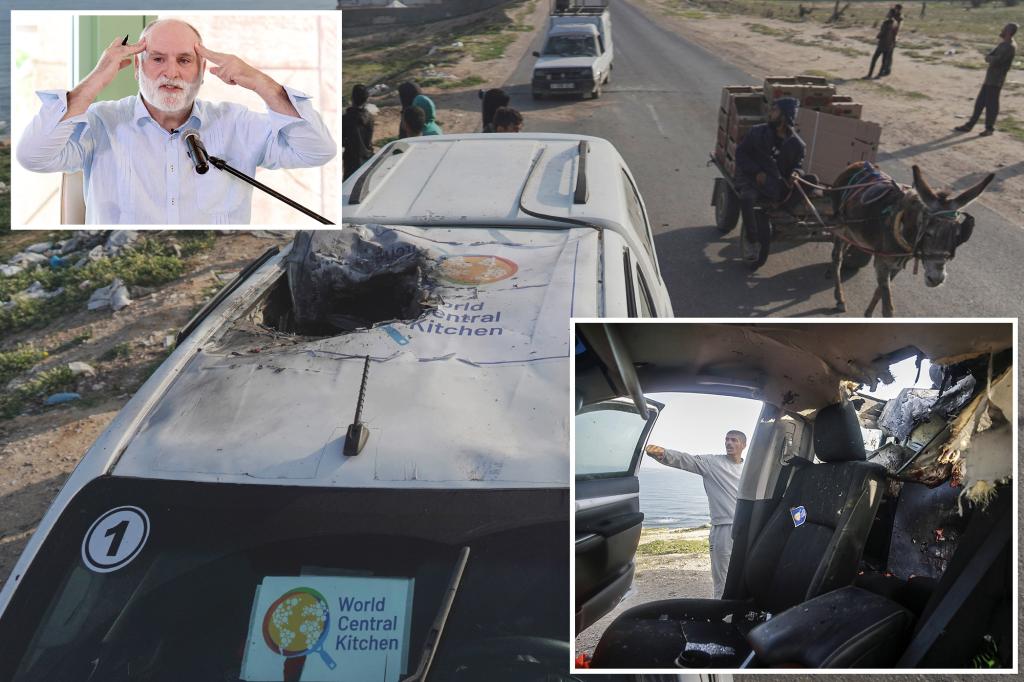Chef José Andrés of World Central Kitchen questioned Israel’s claims that its military targeted charity workers’ convoy, leading to the deaths of seven workers. The Israel Defense Forces released findings of their preliminary investigation, stating that a commander assumed Hamas terrorists were inside the vehicles. The IDF admitted that the forces did not identify the vehicles as belonging to WCK and mistakenly targeted them, violating their Standard Operating Procedures. Despite the IDF claiming they could not see WCK’s logo on the vehicles, Andres expressed skepticism and questioned the targeting of humanitarian workers.
Andres expressed his doubts that the IDF did not know the vehicles belonged to WCK and dismissed claims of a mistake. He stated that bringing Hamas into the equation every time something happens is not productive. He called for a review of the footage of the strike to clarify if the claims were true. Andres emphasized the importance of distinguishing humanitarian workers from combatant groups, highlighting the need to protect civilians and aid workers in conflict zones, particularly in Gaza.
Referencing previous incidents of attacks affecting civilians and aid workers in Gaza, Andres highlighted the long-standing issue of targeting innocent individuals trying to access humanitarian aid. He emphasized that this trend has been ongoing for too long. Andres noted that the conflict was no longer about the specific incident involving the seven World Central Kitchen workers but indicated a broader pattern of targeting anything perceived as associated with Hamas. He condemned the attacks as a war against humanity itself.
Andres pointed to the broader implications of the conflict, suggesting that it was no longer about fighting terrorism or defending Israel but had spiraled into a war against humanity. He emphasized the need to prioritize the protection of civilians, particularly in conflict areas like Gaza, where humanitarian access is vital. Andres expressed concern about the increasing number of cases involving the deaths of humanitarian workers and civilians due to military actions. He called for a reassessment of the situation and a commitment to upholding humanitarian principles in times of conflict.
The situation highlighted the challenges of operating in conflict zones where humanitarian workers and civilians are at risk of being caught in the crossfire. The inability to distinguish between civilians, aid workers, and combatants can lead to tragic consequences. The incident involving World Central Kitchen workers underscored the need for increased vigilance and accountability in military operations to prevent such mistakes from reoccurring. These incidents serve as a reminder of the importance of respecting international humanitarian law and protecting civilians during armed conflict.


